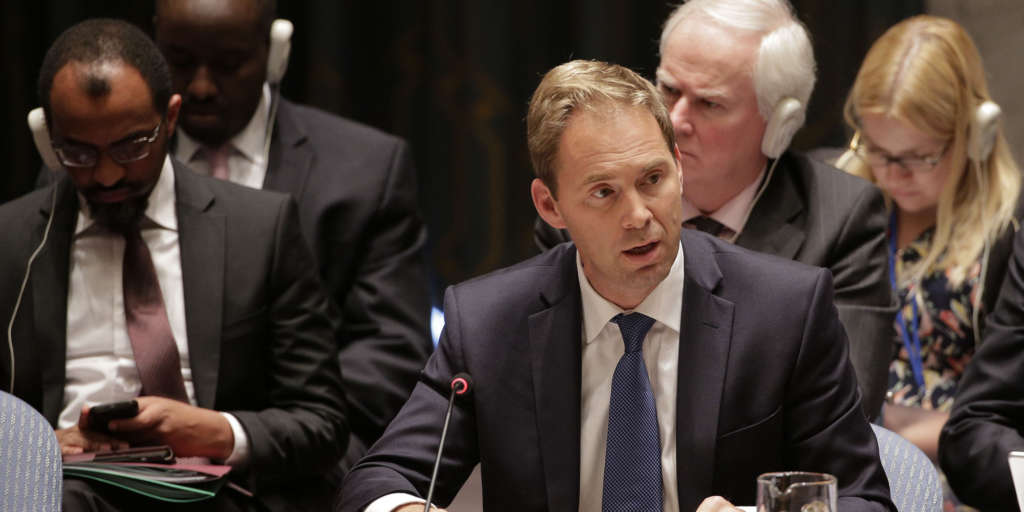London- Foreign and Commonwealth Affairs Minister for the Middle East and Africa Tobias Ellwood said: “We are worried regarding Iran arming Houthis as we have received reports implying that Iran has transferred arms to Yemen; thus violating U.N. Security Resolution 2216, which forbids Iran from exporting weapons.”
In an interview with Asharq Al-Awsat via email, the minister added that headquarters of banks in Yemen are still in Sanaa and follow the governor’s rules.
This is why the United Kingdom has called several times for establishing a neutral central bank as it helps in maintaining stability in exchange rate, debts’ service, imports’ facilitation and maintaining economic confidence to ensure that the commercial markets are working as they should.
Ellwood suggested implementing technical steps to revive the economy temporarily, and he talked about direct financial support for foreign exchange currencies in Yemen in addition to trade guarantees for fundamental imports of food and gas, debt relief, and the resumption of cash transfers through the Social Welfare Fund.
He added that the UK government welcomes innovative ideas from partners in the region, especially those related to means of ensuring that importers receive the necessary funds in order to continue buying wheat and rice from abroad.
The British Minister reiterated his country’s support for Special Envoy to Yemen Ismail Ould Cheikh Ahmed’s work.
Ellwood said: “We appreciate Ould Cheikh’s efforts to reach a political solution between the two parties and this is the only way to reach stability on the long term and put an end for the current conflict.”
In Libya, Ellwood said, having two central banks did not help in reaching national unity.
Regardless that establishing a new central bank is not as easy as it seems since there are legal fallouts and logistic and security challenges.
When asked about UK’s suggestions for the international community to save the situation in Yemen, Ellwood said that Yemen is suffering a catastrophic economic failure that could worsen the humanitarian crisis and cause permanent structural damage for the economy.
“We have to know that 80% of Yemen’s population needs humanitarian aid. In order to deal with this crisis, we have to make sure trade markets are revived actively.”
